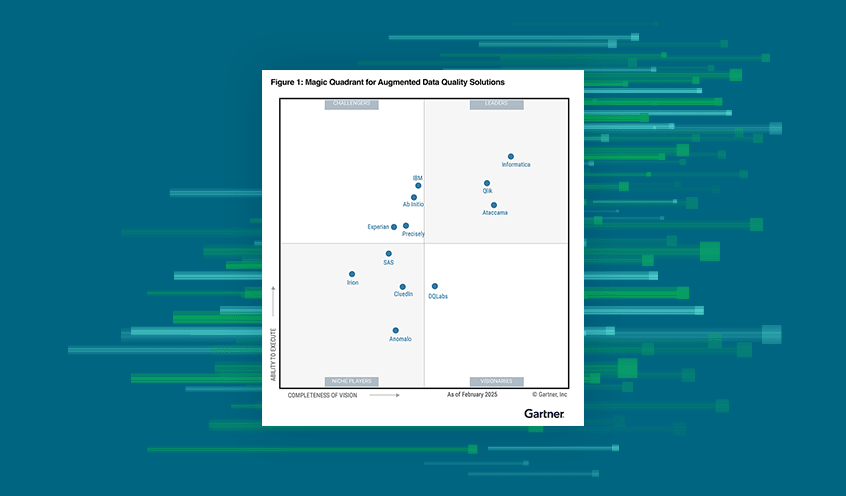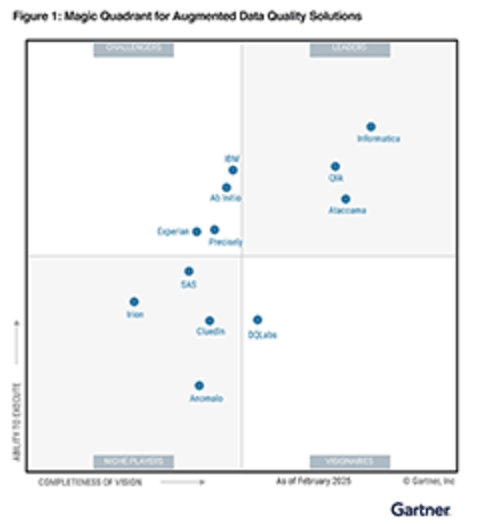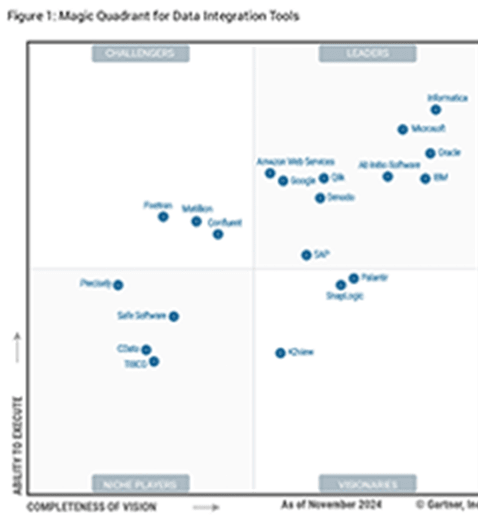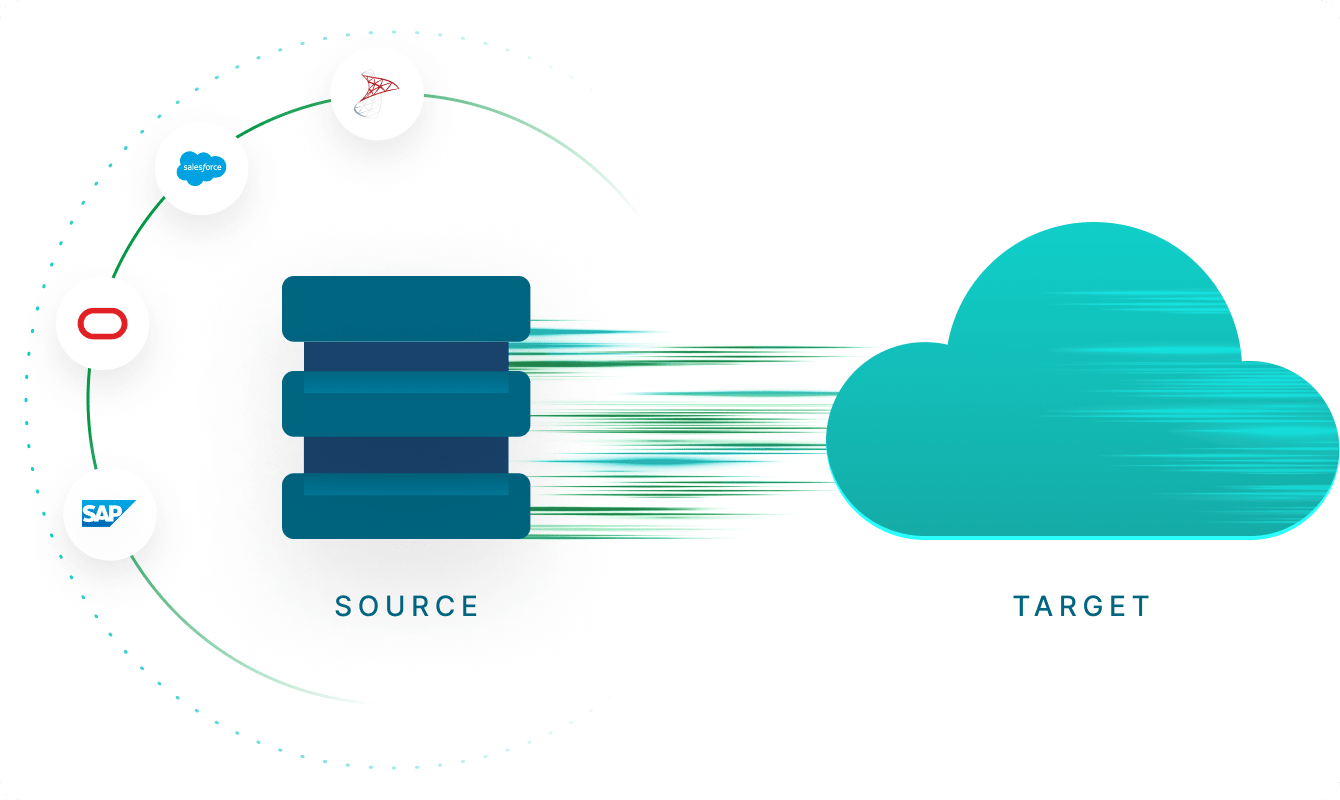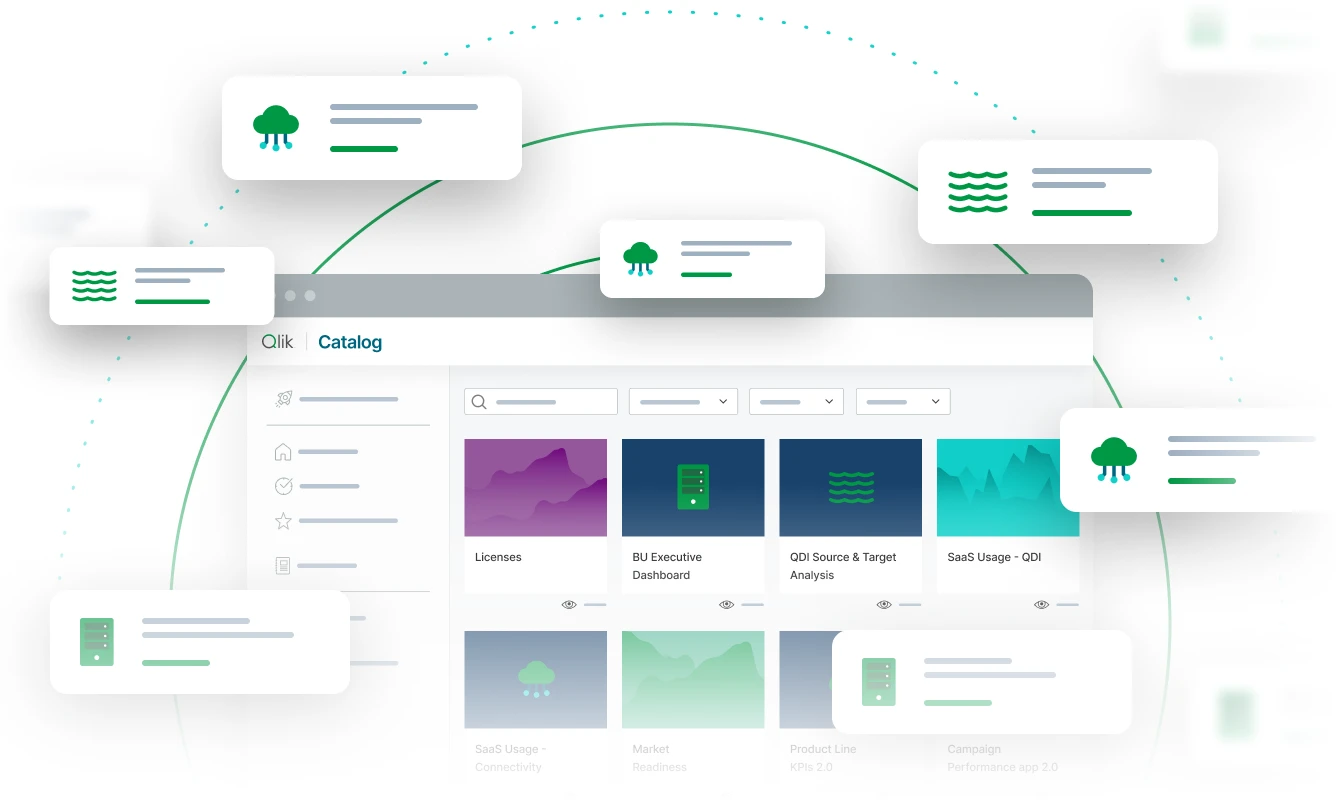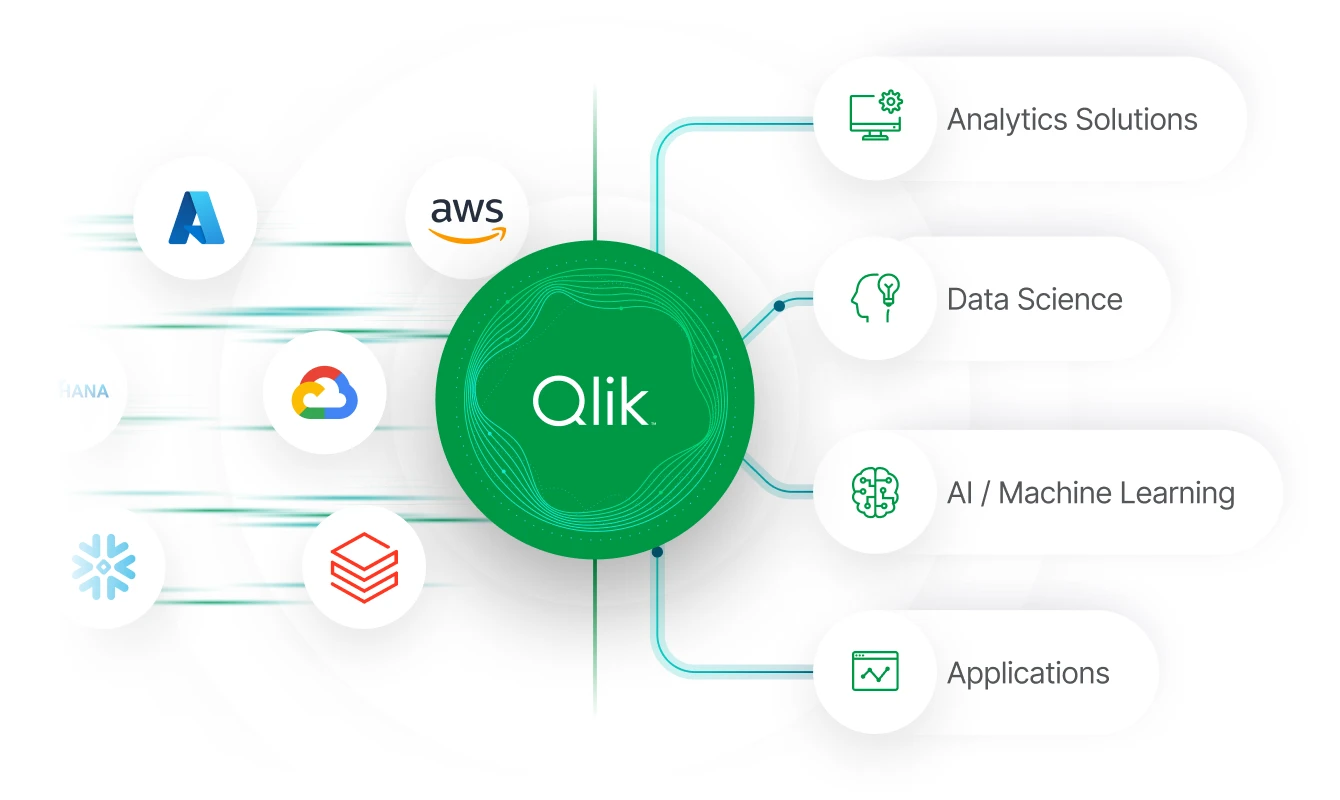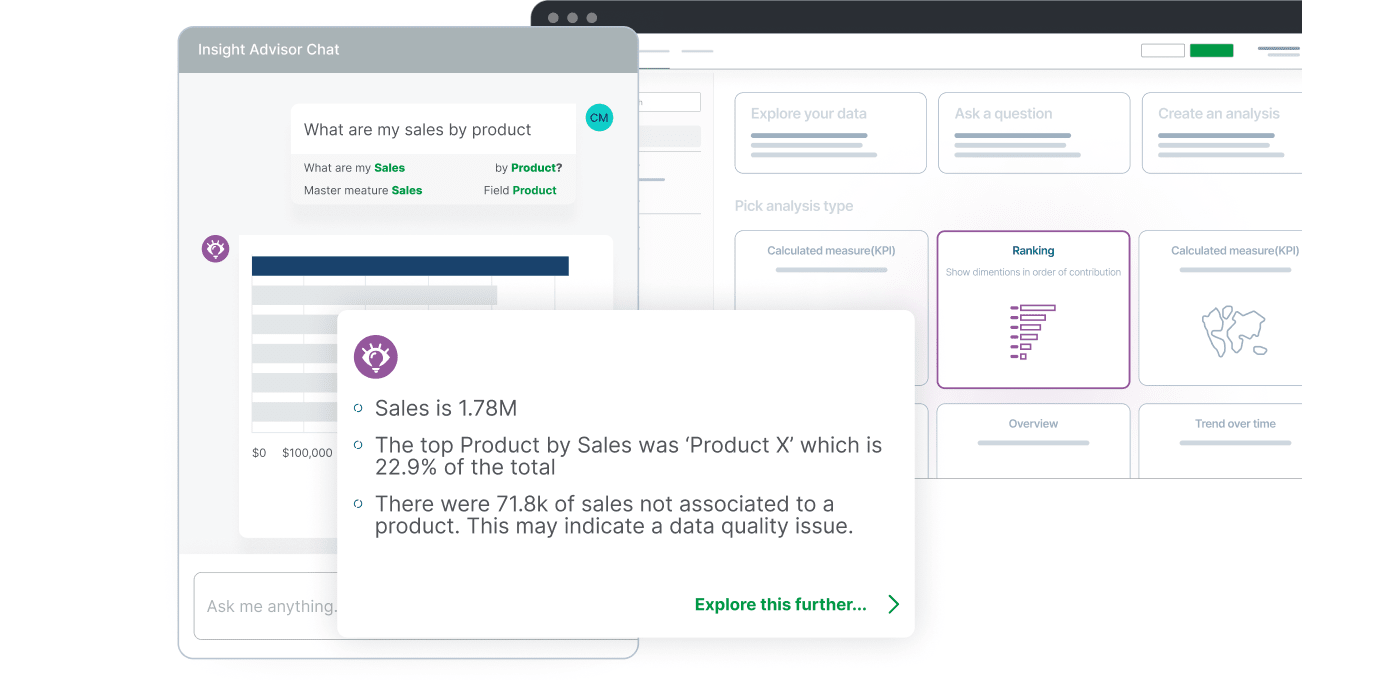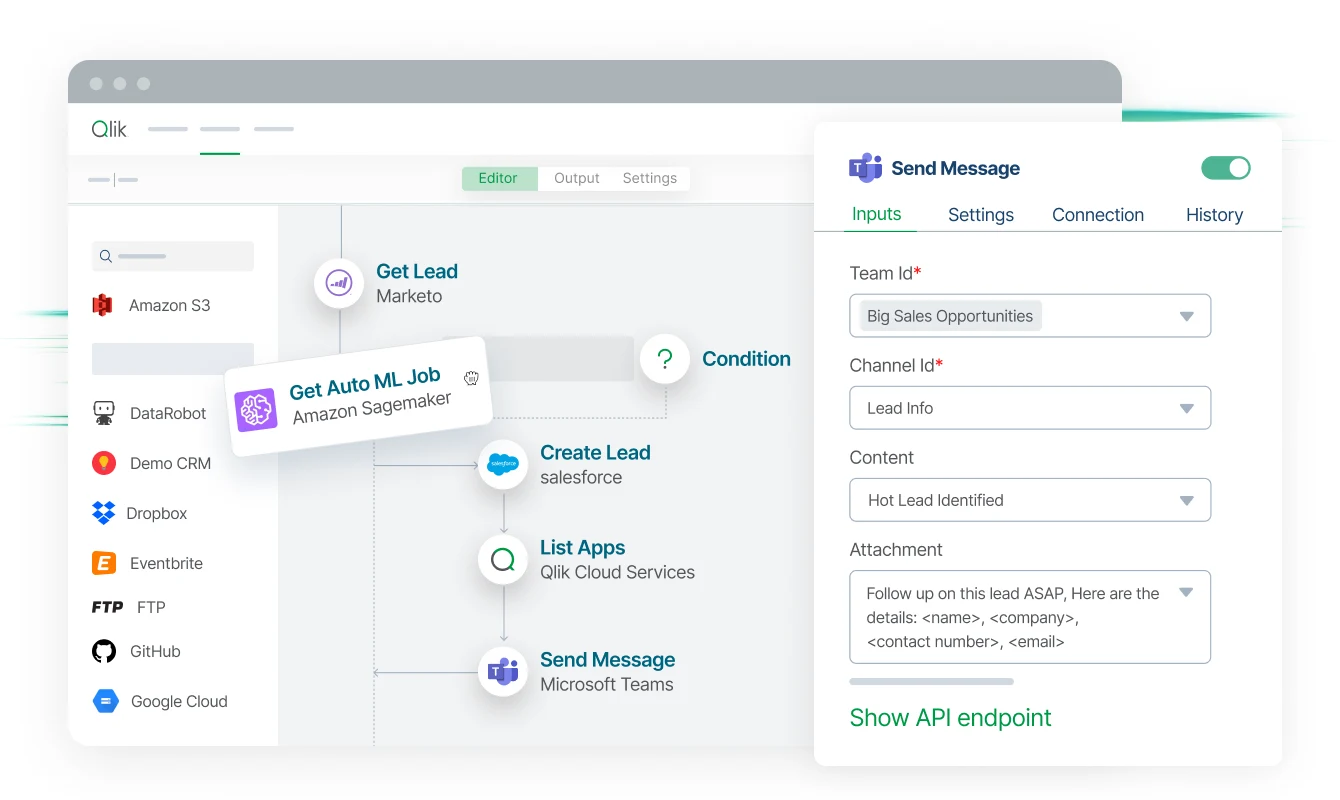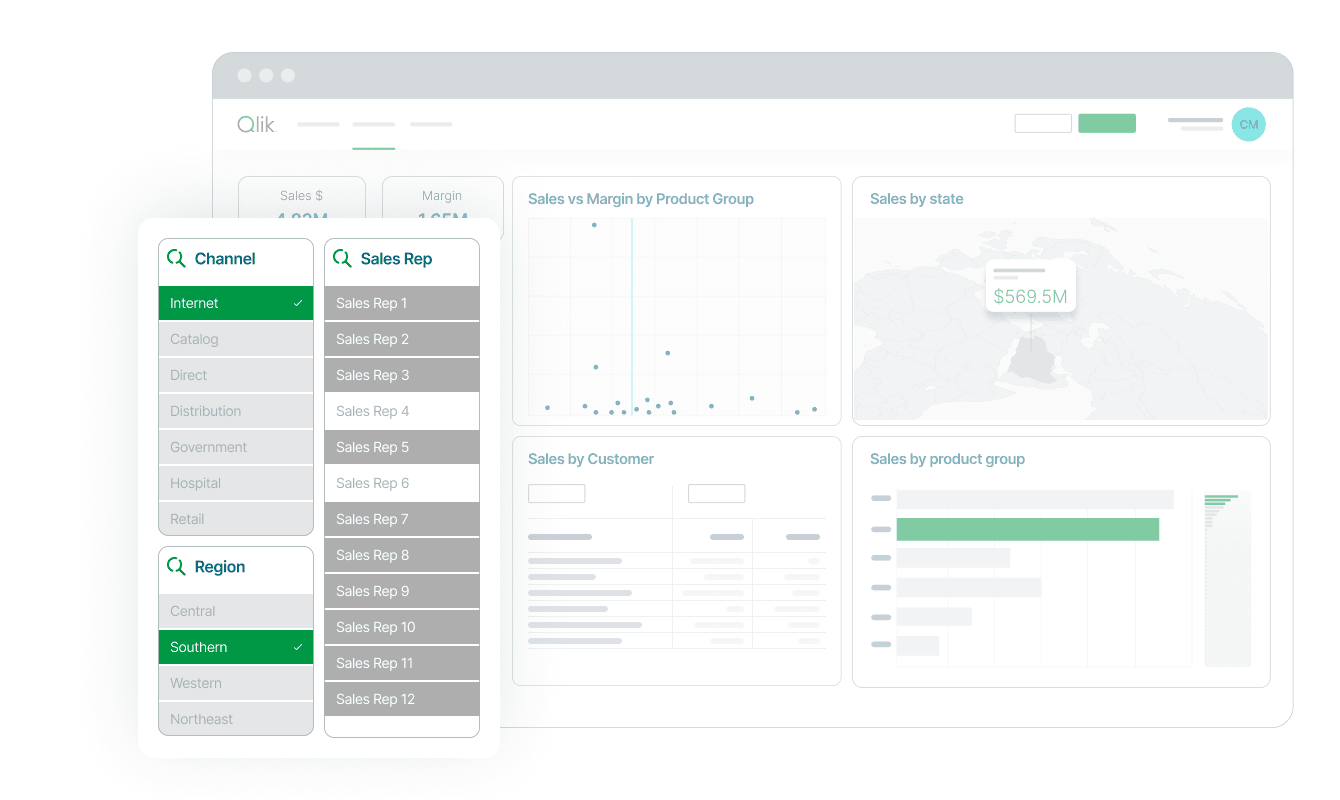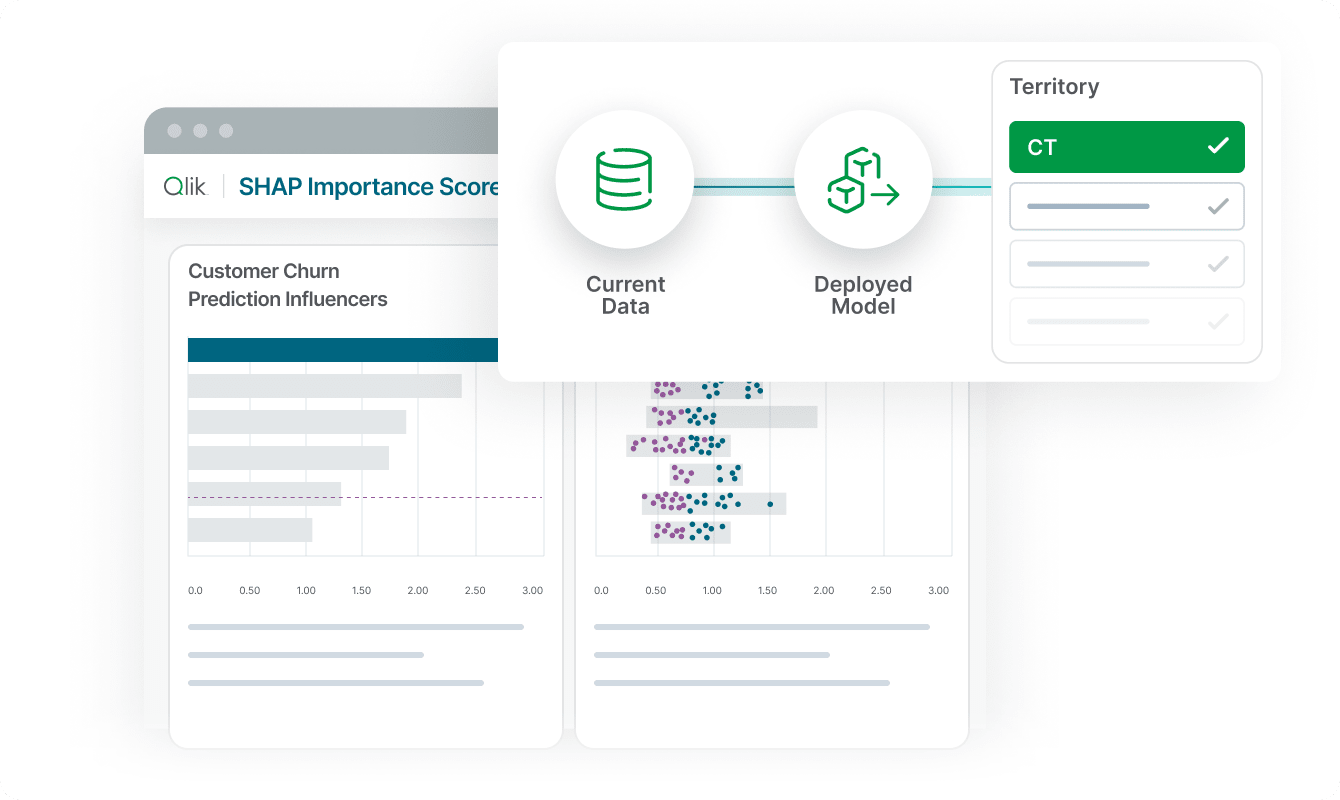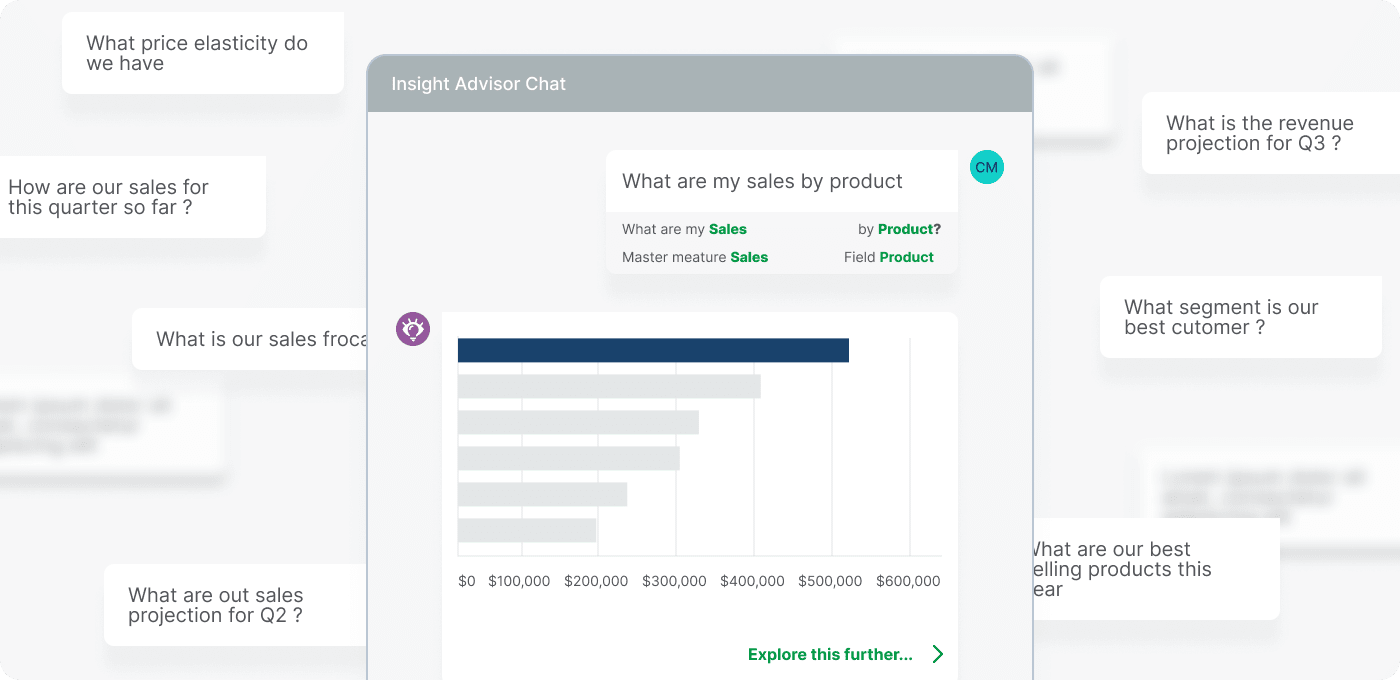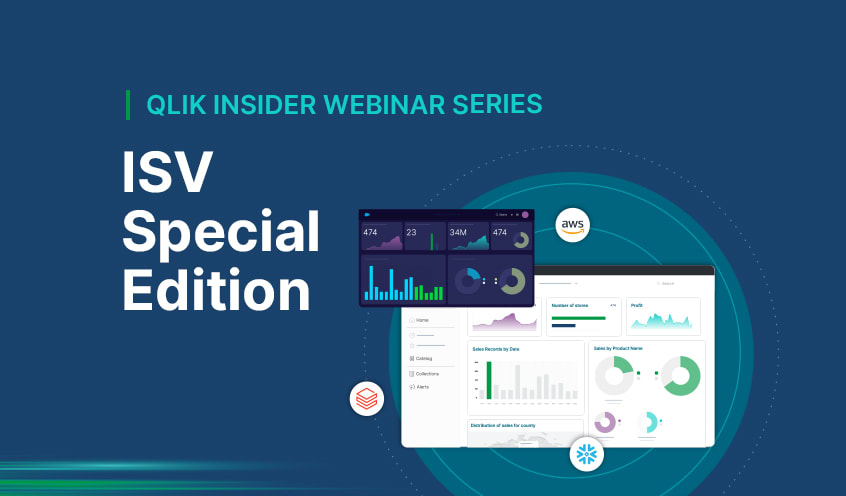Wherever there’s data, there’s power
Qlik® helps you use your data to solve problems, meet new objectives, and address critical business needs. It all starts here. With the industry leader in data integration and analytics solutions that support your AI strategy.
Team up with a Gartner® Magic Quadrant™ leader
in three categories
Register now for 3 days of networking, learning, and inspiration at Qlik Connect 2025!
Wherever there’s data, there’s Qlik
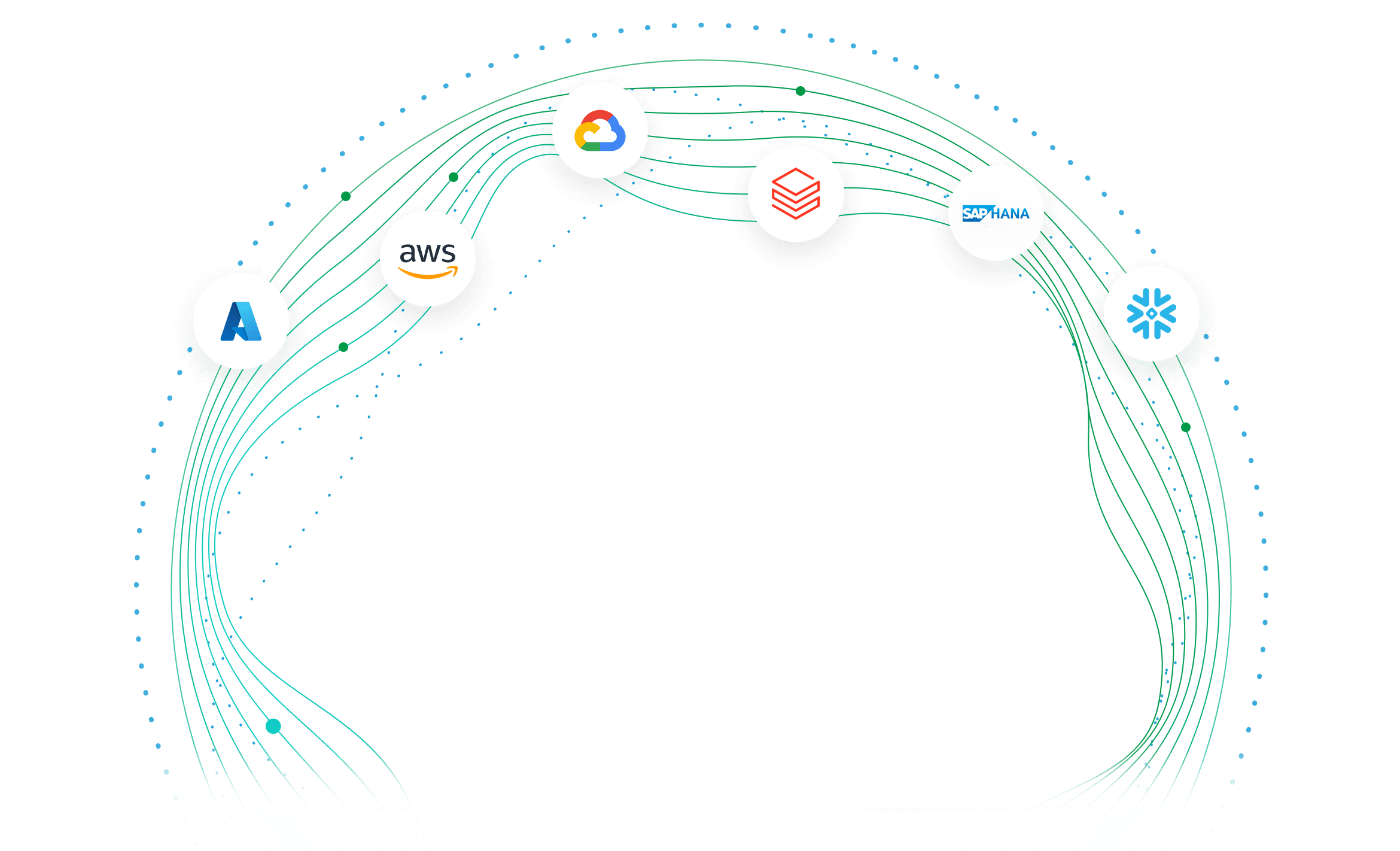
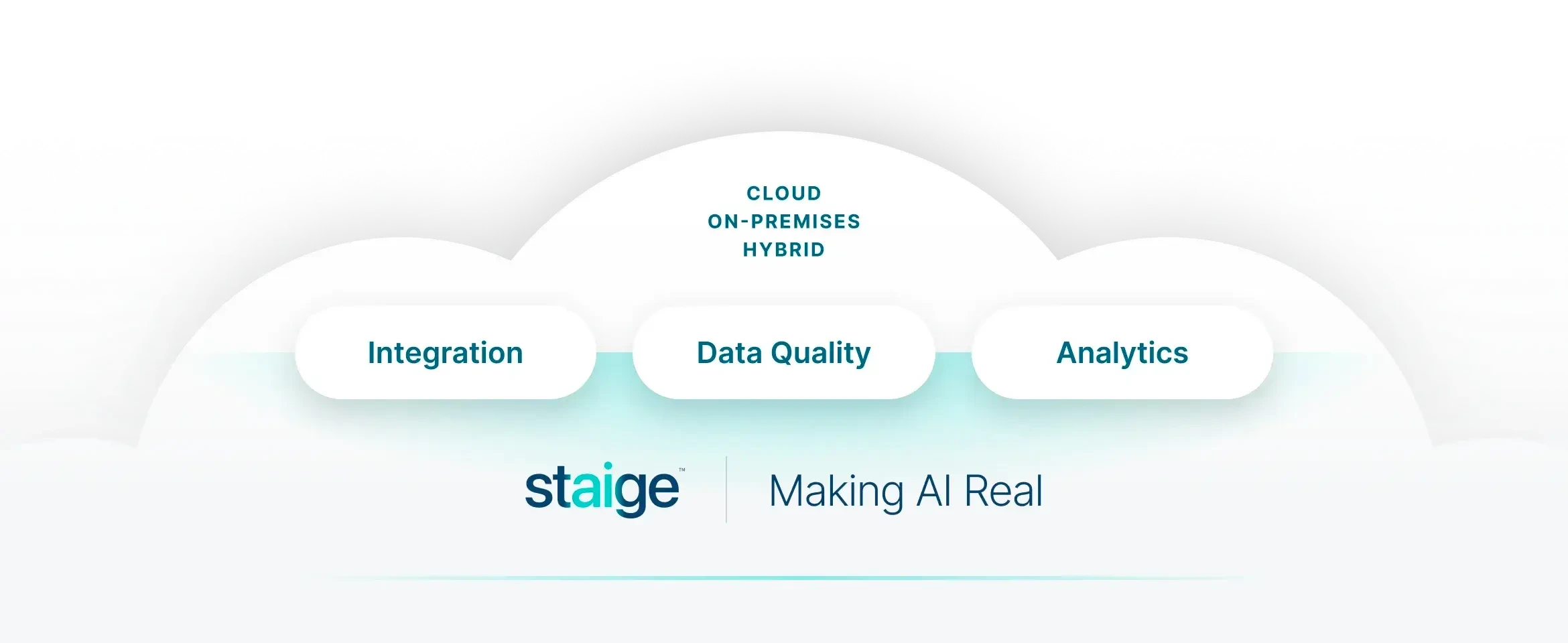
Real-time agility. Virtually any source to any target.
From small to massive, varied data sets.
Enterprise-grade security and governance.
DATA INTEGRATION AND QUALITY
Qlik Talend® Cloud: The data fabric for your modern architecture

Streaming Data with Change Data Capture
Deliver volumes of real-time, analytics and AI-ready data.

Data
Warehouse Automation
Accelerate and simplify the data warehouse lifecycle.

Data Lake /
Data Lakehouse Creation
Enable the agile data lake.

Data Quality and Governance
Find, manage, and fix your data quickly and securely.
ANALYTICS AND BUSINESS INTELLIGENCE
Qlik Cloud® Analytics: Make data-driven insight accessible to everyone

Augmented Analytics
Make insights accessible to everyone with automated insight generation, predictive analytics, and generative AI.

Embedded
Analytics
Your business users can make better decisions faster with real-time insights and information embedded in apps they already use.

Visualizations and Dashboards
No matter the technical skill, you can quickly search and explore contextually and interactively across all datasets, in any direction.

Reporting
Automated, no-code report templates and options work with all major platforms and apps.
ARTIFICIAL INTELLIGENCE AND MACHINE LEARNING
Everyone in your organization can take advantage of predictive and generative AI

Qlik AutoML®
Make predictive insight available to your analytics teams. Create automated machine learning models, explore data, run experiments, and publish results without needing to be a data scientist.

New! Qlik Answers™
An all-new knowledge assistant. Now you can get personalized, relevant answers to questions generated from a variety of unstructured data sources.

Insight Advisor
Improve decision making with natural language AI-powered insight generation. Use conversational chat and search to get fast answers and generate advanced analyses and insights.

Unique Associative Engine
Unleash the true power of AI. Unify all your data and freely explore it, in-context, with instant calculations as you ask questions.
Trusted by more than 40,000 customers where data is mission critical
EBOOK
Generative AI Benchmark Report
86% of organizations are planning to use generative AI to support data analysis, but only 39% have a formalized AI strategy.


How data-driven leaders tackle their toughest challenges
DATA INTEGRATION
Real-Time Data and Analytics Radically Improve Domino’s Efficiency, Customer Service — and Sales
Emphasis on innovation helps Domino’s achieve more than 50% of all global retail sales from digital channels.
DATA INTEGRATION
Urban Outfitters Reduces Store Level Reporting from Hours to Minutes
Retail leader uses real-time data to support in-the-moment decisions.
ANALYTICS
Intuit Simplifies Analytics with a Company-Wide Portal
The technology leader now provides access to real-time data across multiple applications through a modern web experience.
ANALYTICS
Integra Lowers Cost and Reduces Effort to Convert Loan Prospects
They’ve generated remarkable improvements in the efficiency of acquiring and qualifying leads.
ANALYTICS
Data Research Reduced From Thousands of Hours to Near Real Time
Market leader Georgia-Pacific created an easy-to-use single source of truth for both developers and end users.
DATA INTEGRATION
Vanguard Uses Qlik Data Integration to Manage Diverse Workloads and Huge Data Volumes
Adoption of the cloud data platform increased by 200% year-over-year and compute costs reduced by 30%.
DATA INTEGRATION
Gordon Foods Turned Operational Analytics into Lead Gen and Deeper Analysis
A 24-hour delay in information access was reduced to a few minutes.
DATA INTEGRATION
Airbus Consolidates Heterogeneous Data with Near Real-Time Updates
With Qlik, Airbus gathers and manages data on thousands of aircraft parts across their supply chain and inventory.
1 of 8














